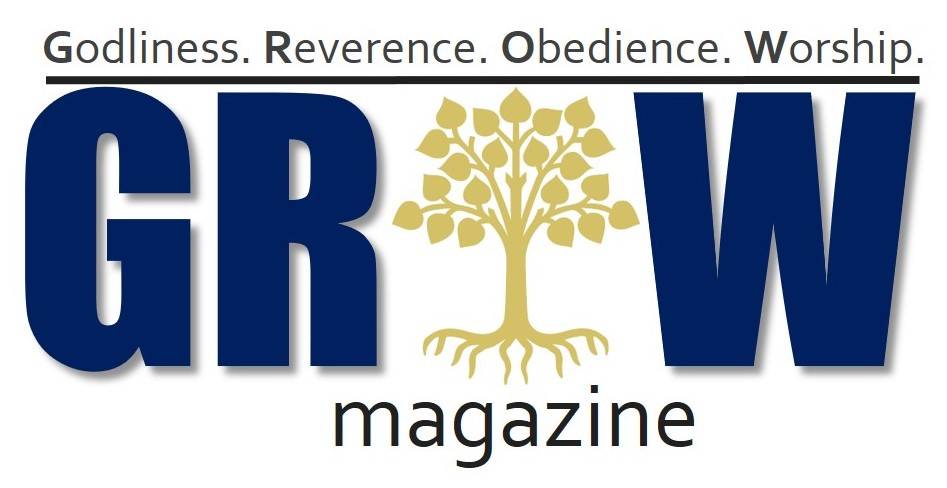Worship On The Lord’s Day
WORSHIP ARTICLE | Sean Cavender | Wichita, Kansas

John states that he was in the Spirit on the “Lord’s Day” (Revelation 1:10), which has been widely accepted and identified as the day Christians assembled to worship. As you read the New Testament, it becomes clear that the early church was committed to worshiping on the first day of the week. Take note of a couple passage:
“On the first day of the week, when we were gathered together to break bread, Paul began talking to them…” (Acts 20:7, NASB95)
“On the first day of every week each one of you is to put aside and save as he may prosper, so that no collections be made when I come” (1 Corinthians 16:2, NASB95)
Worship on the first day of the week may not seem strange, abnormal, or significant to us in the 21st century. We may worship on Sundays without much consideration of why we worship on the first day of the week. However, when we consider that the first-century church and the earliest converts to Christ were Jews, the fact that the primary day of worship shifted from the Sabbath day (seventh day) to the first day of the week is shocking!
Why was there such a dramatic shift? Indeed Jewish Christians did not change days of worship because of convenience. Considering how much easier it would have been for Jewish Christians to forsake their Sabbath synagogue meetings to worship with their local Christian brothers and sisters on the Sabbath. No, the change in worship to the first day of the week reveals there was something much more important at stake. The shift to the first day of the week worship was intentional — and for excellent reasons.
The primary reason the first day of the week became the day on which local churches assembled to worship and observe the Lord’s Supper was because it was the day the Lord Jesus Christ was raised from the dead. The gospel of Mark reports that “when the Sabbath was over,” three women went to Jesus’ tomb with spices to anoint His body (Mark 16:1). It was “very early on the first day of the week” and they found the tomb was empty (Mark 16:2-6). The resurrection of Jesus is vital for obtaining justification and forgiveness from our sins (Romans 4:25; 1 Corinthians 15:3-5). Since Jesus’ victory over sin and death occurred on the first day of the week, it is only fitting that Christians would honor that day and worship together.
In Acts 20:7, the disciples met on the first day of the week and observed the Lord’s Supper. This observance of the Lord’s death is a distinctive mark of the church’s worship on the first day of the week. When we observe the Lord’s Supper, we proclaim “the Lord’s death until He comes” (1 Corinthians 11:26). Do not miss the subtle implication Paul is making: the Lord’s Supper is not a meal at a funeral wake; it is a celebratory feast of a Savior who died but was resurrected and will return! The first day of the week is significant for Christians because of Jesus’ resurrection. Therefore, it is the right day to honor Him as the living Savior.
A second reason the first day of the week became the day of worship was that the apostles first proclaimed the gospel on the first day of the week, and the church was established on that day. It might easily escape our attention that the day of Pentecost in Acts 2 occurred on the first day of the week. The prefix pente- means 50. In the Old Testament, Moses gave instructions about the day of Pentecost in Leviticus 23:15-16. Pentecost would occur after Passover by counting seven Sabbaths. So, seven weeks between Passover and Pentecost. Seven weeks times seven Sabbaths would be 49 days. Therefore, the 50th day would be the first day of the new week.
Peter and the apostles first announced that Jesus was the resurrected and exalted Lord and Christ on the first day of the week (Acts 2:32-36). Then, Peter told the 3,000 to be baptized in Jesus’ name for the forgiveness of their sins on the first day of the week (Acts 2:38, 41). Christians began worshiping on the first day of the week (Acts 2:42). The church was first established on the first day of the week (Acts 2:47). The first day of the week became the established pattern in the New Testament as the day in which the local church would gather together to worship. Nearly 25 years after Pentecost, we have the explicit statement about the saints in Troas worshiping and breaking bread in Acts 20:7. The church was still worshiping on the first day of the week! The church in Troas was outside of Jerusalem. It was likely to have a more significant number of Gentiles in the church since they were several hundreds of miles away from Jerusalem. So, the first day of the week was more expansive in scope than a local Jewish practice in Judaea. The Christians in Troas observed the Lord’s Supper and received instruction from God’s word, a practice that continued from Acts 2. It is clear that Christians — Jewish and Gentile Christians all across the Roman Empire — followed the pattern of worshiping on the first day of the week because it was an important day. First Corinthians 16:1-2 shows that the church in Corinth assembled on the first day of the week. Paul states in 1 Corinthians 16:1 he was telling the church at Corinth to do what the churches of Galatia were doing as well. It becomes clear the first day of the week was the day God wanted all Christians to come together to worship Him. Worship on the first day of the week was a universal pattern and practice among the first-century disciples.
A third reason the first day of the week became the day for the Lord’s church to assemble for worship was that Christians are no longer required to keep the Law of Moses. When Jesus offered Himself as the sacrifice for sins, He abolished the Law of Moses with all of its commandments and ordinances (Ephesians 2:15). Jesus removed the animal sacrificial system. He removed the requirements to keep certain dietary restrictions and circumcision. The Law was nailed to the cross (Colossians 2:14). Therefore, Jesus’ death removed the requirement of Sabbath day worship as well. The old covenant was removed, and a new covenant was installed for which Jesus died (Luke 22:20). The new covenant day for worship is not the Sabbath day — it is the first day of the week!
Now, just because the requirement of the Law was removed and Jews were no longer bound to keep the Law does not mean everyone quit observing the Sabbath. The New Testament indicates many Jews continued to keep the Sabbath day because they were zealous for the Law (Acts 21:20). Even the apostle Paul took a vow and went to the Jewish temple for purification and sacrifice. Still, he did so because of personal judgment, not because he thought he had to keep Old Testament rituals for salvation (cf. Acts 21:15-26). So, Jewish Christians might have continued to practice cultural traditions, feast days, and Sabbath observance. However, if they chose to do so, they were supposed to do so with the understanding that those things were empty of any genuine spiritual significance; those practices were just shadows. Christ and the new covenant is where the substance belongs (Colossians 2:16-17). God allowed Jewish Christians to practice such things without it being sinful; observance of some of those things would come down to personal opinion and choice. Christians were not to judge or bind observance of the Sabbath upon other Christians (Colossians 2:16; Romans 14:5) since the day of worship under the new covenant became the first day of the week.
Some religious groups fail to recognize that the new covenant day of worship is the first day of the week. For example, the Seventh-Day Adventists believe people today are bound to keep the Ten Commandments, including Sabbath observance. While the New Testament supports the continued practice of nine out of the Ten Commandments, the one commandment that is never stated to be continued is the observance of the Sabbath. The best-case scenario is that Sabbath day worship is permitted if someone would like to observe it. Christians are allowed to worship any day they would like to since there is no limit to how often Christians can worship (cf. Acts 2:46). However, Sabbath day worship is not required to be kept by Christians today since we are now under a new covenant. And anyone who forsakes worshiping on the first day of the week denies the significance of Christ, His resurrection, the church, and the gospel.
God commanded the Sabbath day in the Old Testament (Exodus 20:8-11). In one sense, God was the first observer of the Sabbath (Genesis 2:1-3). Under the Law of Moses, God purposed the seventh day to be a day that was distinct from the other six days. Israelites prepared for the Sabbath so they could cease their work. There was punishment for breaking the Sabbath (Exodus 35:2-3; Numbers 15:32-36). While there may be a good, even godly, principle to take a day of rest from your work, that is nowhere commanded by God in the New Testament. While Sunday has become the day of worship for Christians, Sunday does not become the “Christian’s Sabbath day” where God requires you not to do any work. Christians are free to do work on the Lord’s day. However, they must not allow their work to take priority over worshiping God.
While Christians are required to worship on the first day of the week, that is not the only day that Christians can (or should) meet. Christians are free to assemble as often as we may want to for worshipping God. But Christians are not bound by the Law of Moses and the Ten Commandments, which require Sabbath observance and cease from doing any work. The New Testament clearly shows us the pattern of the early church and the importance of the first day of the week worship. It is a pattern that we must continue to practice today. God expects us to worship on the first day of the week, and we must not forsake its significance and importance. The first day of the week is the “Lord’s day” because it is the day that Christians assemble to remember and proclaim the Lord’s death. The “Lord’s day” is the day we worship our Savior and our God. The “Lord’s day” is the day that we set aside to give glory and honor to Him for the salvation that we have through the risen Son of God.
October 2021 | GROW magazine

